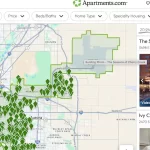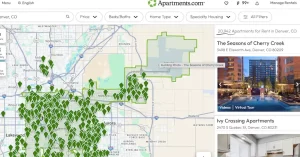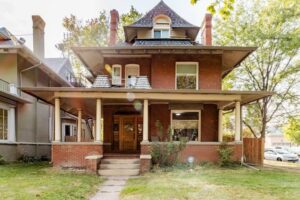 Being an owner-occupant landlord means living in the property you own while renting out a part of it. The rental income helps pay for the costs of homeownership. It could be renting a section of your house, or an ADU (accessory dwelling unit) in the backyard, or having a building with multiple apartments – (duplex, triplex, quad) and even renting extra parking spaces.
Being an owner-occupant landlord means living in the property you own while renting out a part of it. The rental income helps pay for the costs of homeownership. It could be renting a section of your house, or an ADU (accessory dwelling unit) in the backyard, or having a building with multiple apartments – (duplex, triplex, quad) and even renting extra parking spaces.
Have you accumulated the nest egg you need?
Many people find themselves approaching retirement with less in savings they they would like. At the same time, the costs of owning a home are soaring, and inflation eats away at whatever pension, savings or Social Security they do have.
The primary costs of owning a home include:
a mortgage
property taxes
property insurance (currently soaring in most parts of the country)
flood insurance
utilities
upkeep
Rental income can cover part or even all of those expenses – while keeping a roof over your head
Being an owner-occupant landlord supplements retirement income and can cover much or even all of the carrying costs of a home.
——————
What costs of homeownership can climb and are out of your control?
Mortgages are usually fixed rate for 30 years and are about the only thing that is not going to go up.
Nationwide, home insurance is climbing at a rate in the double digits in many areas due to the changing climate and extreme weather events like hurricanes, hail and fires.
Property taxes are soaring as cities and municipalities struggle to keep up with climbing salaries for municipal workers.
Flood insurance is not part of property insurance and is rising as the costs of storm damages escalate.
While all those costs are climbing, Social Security is not keeping pace with real inflation. The Social Security Administration calculates an annual rate increase, but it is not equal to the real rate of inflation. If social security falls behind the real rate of inflation by 2% per year, then, compounded, that’s over 50% in 20 years.
What a shift to being an owner-occupant landlord can mean.
For starters, it means I have downsized my living space. My kids are grown and I no longer need a 3,000 or 4,000 square foot house. The more house you have, the more it costs to insure, heat, cool and maintain. Empty bedrooms become a luxury.
Fact: As we get older, we can live smaller. In fact, as a senior citizen myself, I want to live smaller. My kids are grown. I’m divorced. It’s just me. Why would I need more than one or two bedrooms?
I can live very nicely in a 900 square foot condo, or one portion of a multi-family property.
The house I own now is 3,000 square feet – that is split into four apartments. I live in one unit (about 900 square feet) and the other apartments are two one-bedroom units of about 550 sq ft and one Airbnb. The rental income covers the mortgage, property taxes, insurance and utilities.
This type of ownership is not new. It’s been around for hundreds of years and has been a consistent source of wealth for property owners.
——————————
Other benefits:
Additionally, there are the social benefits of having neighbors and being a landlord can provide a sense of purpose – both essential for mental health.
Owner-occupant landlords of 2-4 unit properties have more rights when it comes to choosing tenants and are exempt from parts of the Federal Housing laws.
Tax benefits – owning a multi-family house can provide many tax benefits, including some depreciation, which can offset taxable income.
Walkability – many multi-family properties are located in urban or semi-urban areas.
I live within a few blocks of supermarkets, coffee shops, a hardware store, restaurants and other essential services – like hair salons. Most days I leave my car in the garage and walk wherever I need to go. Its great exercise. A large park is just a short walk away.
Housing costs go up yearly and income from rents can go up yearly as well, while a fixed 30 year mortgage does not. Positioning yourself correctly now can save you hundreds of thousands of dollars in the long run.
Be sure to check out SeniorLandlord.com for articles and info about becoming an owner-occupant landlord. The site is free.






